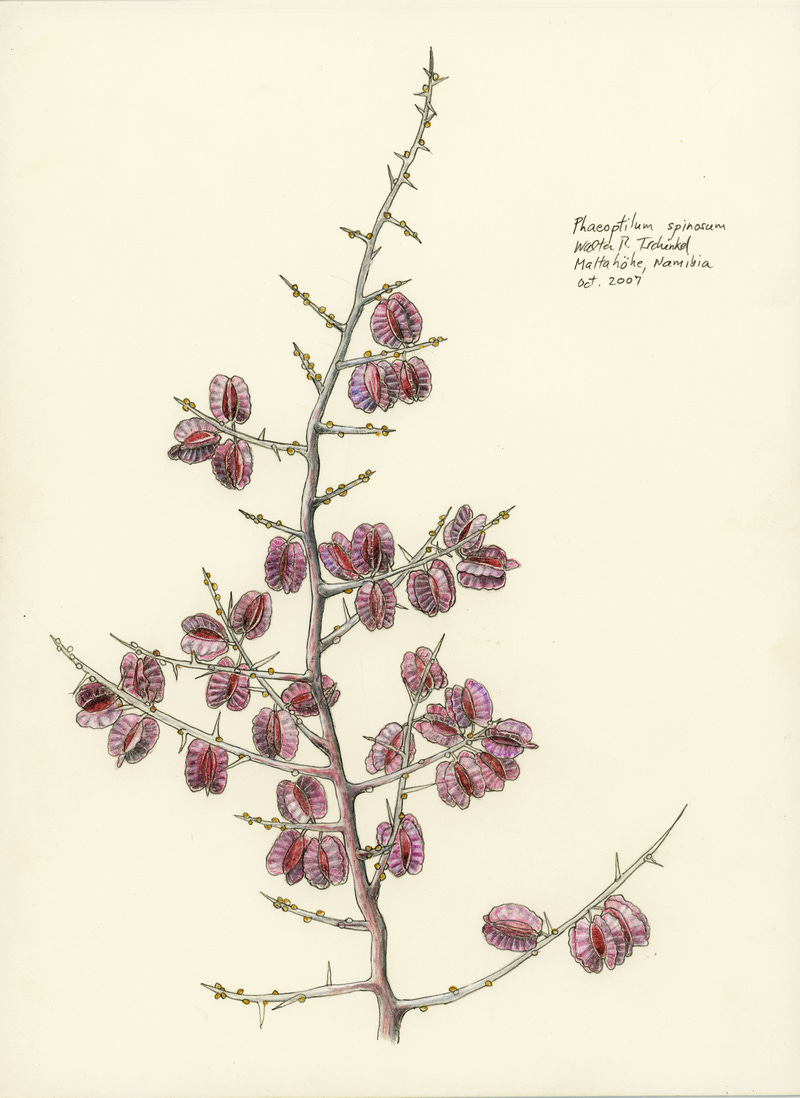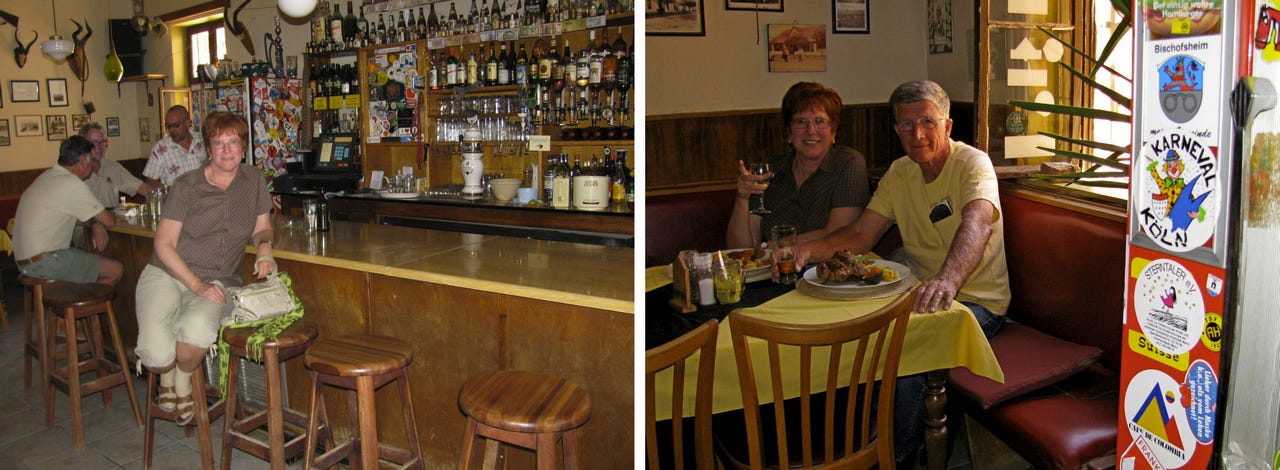
During the German colonial period, Maltahöhe was a lonely police station under the command of a German captain who named the village in honor of his wife Malta, an act for which I imagine she never forgave him. The captain's sense of topography also seems to have been a bit off, for a Höhe in German means a height, and this village was actually at the foot of an escarpment, halfway between Marienthal and the Namib Desert.
Between our first visit to Maltahöhe in 1970 and our return in 2009, Southwest Africa had become Namibia, apartheid was gone, and Maltahöhe had declined even from the sad state in which we first saw it. Its population had dropped to about 6000, karakul sheep farming had died a much-deserved death, the land was still vast and empty, the roads mostly unpaved, and the villagers largely unemployed. In 1970, the unpaved road from Marienthal to Maltahöhe was severely corrugated and the dustiest we had ever driven. The repeated passage of tires had ground the calcrete surface into a super-fine dust that behaved like a liquid, filling every depression in the road, ready to explode like a hand grenade when a tire hit it, shooting thick bursts of dust to both sides, mile after mile. The wash-boarded surface gave drivers two choices of speed--- either slower than 25 miles per hour, living with the desperate feeling that you will never get there, or faster than 45 miles an hour knowing that your tires were floating over the washboard, and you had about as much control as if driving on ice. Anything in between would have shaken all the bolts out of our little VW Squareback. We stuffed towels and clothing in every crack, but it was hopeless, and after endless hours, we finally arrived in Maltahöhe, beige-grey from head to foot, as the chill of dusk settled in.
We slouched, dog-tired, into the Maltahöhe Hotel to book a room. As we signed in, the owner asked if we would be wanting a hot shower, which under the circumstances seemed like a really dumb and completely superfluous question. As we returned to our car for our bags, a black man carrying two buckets of coal passed us, and as we unpacked, we heard clunking outside the back of our dark, depressing room, and then smelled coal smoke. But by the time we were ready to shower, the water had essentially reached its boiling point and could have been used to scald a pig. Rarely has a shower felt so good, and rarely has dirtier water gone down a shower drain.
The hotel was still in business in 2009, advertising warm beer and bad food (neither was true), the interior still a bit run-down, like the town around it, the bar well-stocked, and the schnitzel rather decent. The connection to things German, so strong in 1970 had added another 40 years, bringing the total to well over a century, and apparent in the ads, menu, and décor of the hotel. It was payday, a day on which the nearby Nedbank was filled with solemn workers waiting to cash their paychecks, as there was no hint of ATMs here. The road from Marienthal was now paved, but we had come from the west on unpaved roads from the NamibRand Nature Reserve.

In the overwhelming, obscuring dust of our first visit, I had not noticed the numerous roadside bushes that seemed to blush with pink flowers, conspicuous and incongruous in a dry and brown land, but the pink turned out to be the 4-winged seed pods of Phaeoptilum spinosum, or brosdoring in Afrikaans, a relative of bougainvillea. Spiny it was, but nevertheless eaten by kudu and goats. The branches with their seeds made a nice pink bouquet that never wilted, needed no water but brightened up after an occasional dusting. Driving back to the NamibRand Nature Reserve with this everlasting bouquet provided a counterpoint to the sadness of Maltahöhe and made our stay on the Reserve a little cheerier, but also brought home that no amount of pink could erase the sadness of the town that bears Malta’s name. If Malta saw her namesake town today, would her heart soften just a bit?



You are a very good writer and really gave me a sense of the road, the hotel and town, and the flower.
What did you do afterwards? Please do a follow-up story!.